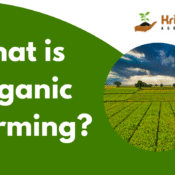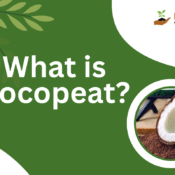
What is Organic Farming? A Complete Guide for India’s Agriculture
Organic farming has emerged as a vital practice in modern agriculture, focusing on growing crops without synthetic chemicals, pesticides, or genetically modified organisms. But what is organic farming exactly? At its core, it’s a holistic method of farming that relies on natural processes, eco-friendly inputs, and sustainable techniques to produce healthier food while preserving the environment.
In India, agriculture is the backbone of the economy, employing over 50% of the population and contributing around 18% to the country’s GDP. With growing concerns about soil degradation, chemical residues, and environmental pollution, organic farming in India is gaining significant momentum. According to a 2023 report, India has over 2.5 million certified organic farmers cultivating more than 3.5 million hectares of land. This trend reflects a growing awareness of the need for sustainable and chemical-free agriculture practices.
Benefits of Organic Farming
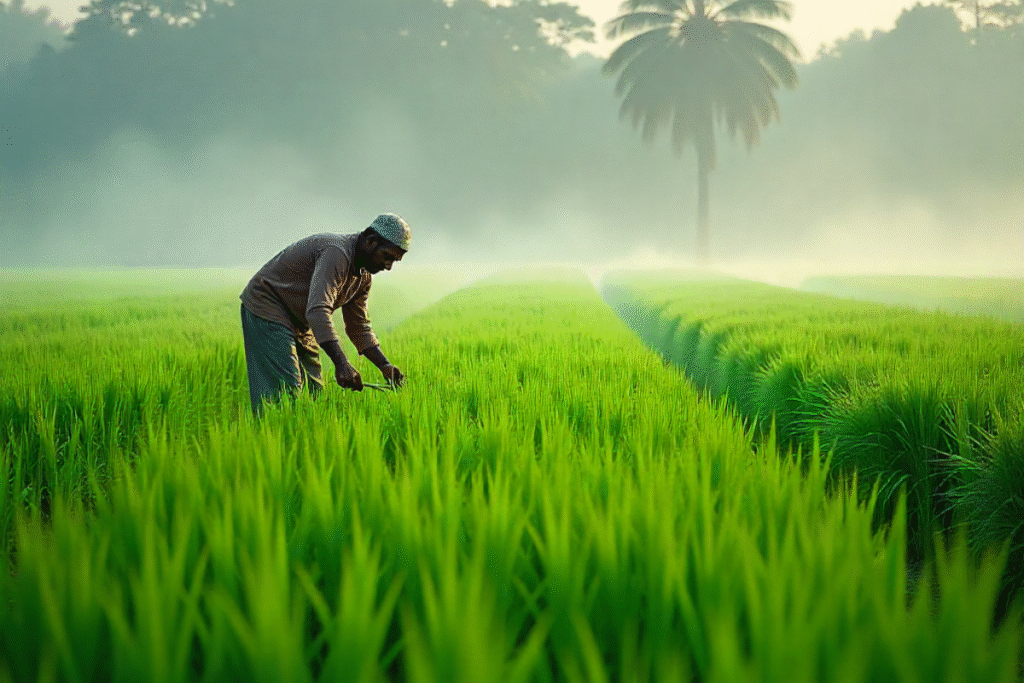
Understanding the benefits of organic farming is essential to appreciate its value. Studies indicate that organic farming offers multiple advantages:
- Soil Health Improvement: Organic farming enhances soil fertility by using compost, green manure, and crop rotation. Healthier soil means better yields over time.
- Reduced Chemical Exposure: Farmers and consumers are less exposed to harmful pesticides and synthetic fertilizers.
- Biodiversity Preservation: Organic farms support a wide range of plants, insects, and animals, creating a balanced ecosystem.
- Higher Nutrient Content: Some studies suggest organic produce may contain higher levels of antioxidants and essential nutrients.
- Water Conservation: Organic practices improve soil water retention, reducing water usage by up to 20% in certain crops.
Organic Farming in India: Current Scenario
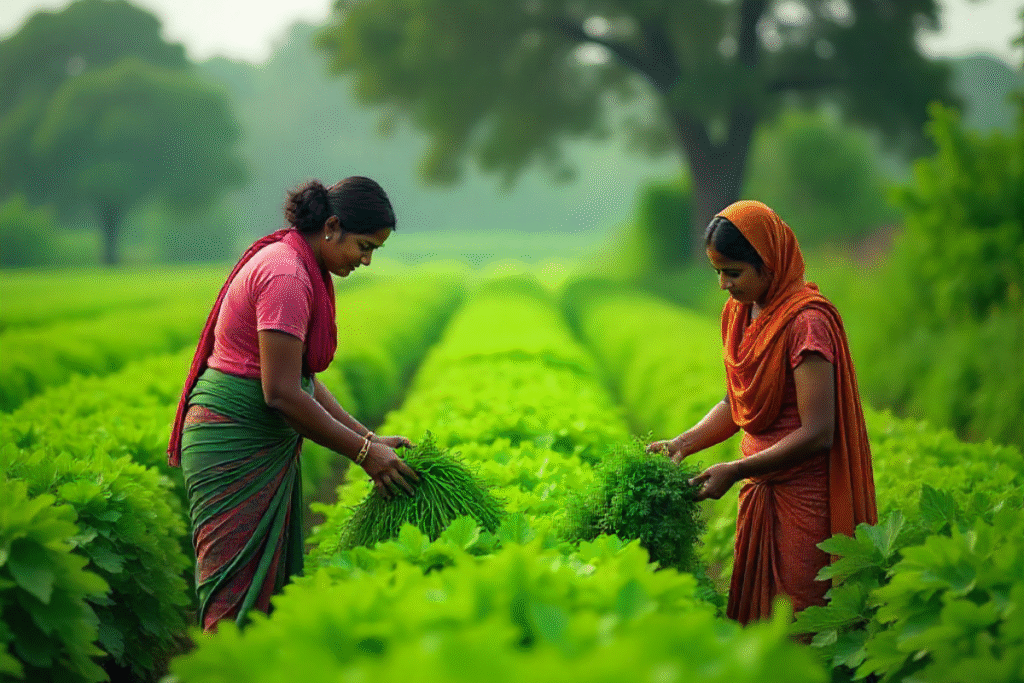
India’s agriculture sector is undergoing a transformation as more farmers adopt organic farming in India. States like Sikkim, Kerala, Madhya Pradesh, and Rajasthan are leading in organic initiatives. Sikkim, for example, became India’s first fully organic state in 2016, proving that large-scale organic farming is achievable.
Government schemes like the Paramparagat Krishi Vikas Yojana (PKVY) encourage farmers to switch to organic practices by offering training, subsidies, and certification support. Organic exports from India have also seen a growth rate of 15-20% annually, showing the economic potential of sustainable agriculture.
Is Organic Farming Better for the Environment?
A common question arises: is organic farming better for the environment? The answer is a resounding yes. Unlike conventional farming, organic farming avoids chemical fertilizers, pesticides, and GMOs, significantly reducing environmental pollution. Key environmental benefits include:
- Lower Carbon Footprint: Organic methods rely on natural inputs, reducing greenhouse gas emissions from synthetic fertilizer production.
- Soil Carbon Sequestration: Healthy, organic soils store more carbon, mitigating climate change impacts.
- Water Quality Protection: Avoiding chemical runoff keeps rivers, lakes, and groundwater cleaner.
Research shows that organic farming can reduce greenhouse gas emissions by up to 30% per hectare compared to conventional methods, proving its eco-friendly advantage.
Are Pesticides Used in Organic Farming?
Many wonder, are pesticides used in organic farming? The answer is nuanced. While synthetic chemical pesticides are strictly prohibited, organic farming allows natural pesticides derived from plants, minerals, or biological sources. These include neem oil, garlic extracts,Vermi wash and beneficial microbes that protect crops without harming the ecosystem. Such practices ensure crop protection while maintaining the safety of soil, water, and biodiversity.
How Organic Farming Supports India’s Food Security
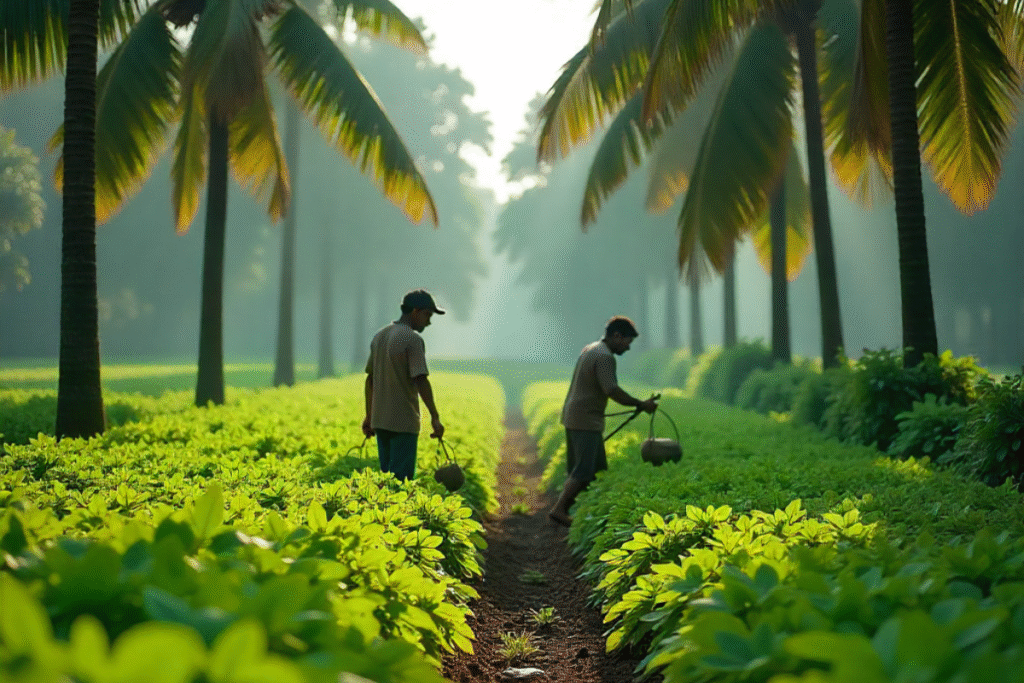
Organic Farming is not just a trend; it’s a necessity for long-term agricultural sustainability. With India’s population projected to reach 1.6 billion by 2050, maintaining healthy soils and ecosystems is critical. Organic farming ensures food safety, promotes local economies, and reduces dependency on imported chemicals.
Additionally, data shows that organic farms can achieve comparable yields to conventional farms over time, especially when managed properly with composting, crop rotation, and organic soil amendments. By integrating traditional knowledge with modern techniques, India can enhance both food security and environmental health.
Challenges and Opportunities
Despite its benefits, organic farming faces challenges:
- Certification Costs: Obtaining organic certification can be expensive for small farmers.
- Knowledge Gap: Effective organic methods require training and expertise.
- Market Access: Connecting farmers with buyers and export markets remains a hurdle.
However, the opportunities outweigh the challenges. With increasing consumer demand for chemical-free food and government support, chemical free farming for exponential growth.
Conclusion
So, It is a science-backed, eco-friendly approach that nurtures the soil, protects the environment, and produces healthy food. Its benefits ranging from improved soil health and biodiversity to safer food and climate mitigation make it an essential practice for India’s sustainable future. By adopting organic methods, farmers not only contribute to their livelihoods but also safeguard the planet for generations to come.
Krishika Agrotech is at the forefront of promoting organic solutions, providing farmers with nutrient-rich vermicompost, cocopeat, and other eco-friendly products. Supporting such initiatives ensures that India continues to embrace sustainable agriculture, making a positive impact on both farmers and consumers.
All Categories
Recent Posts
What is Organic Farming? A Complete Guide for India’s Agriculture
What is Cocopeat? A Complete Guide for Gardening and Farming
Vermicompost: Nature’s Gift for Healthy Soil and Sustainable Farming
Gardening & Agriculture Farms
Grow sustainably while protecting Earth’s natural fertility and future.
9663891563
support@krishikaagrotech.com

